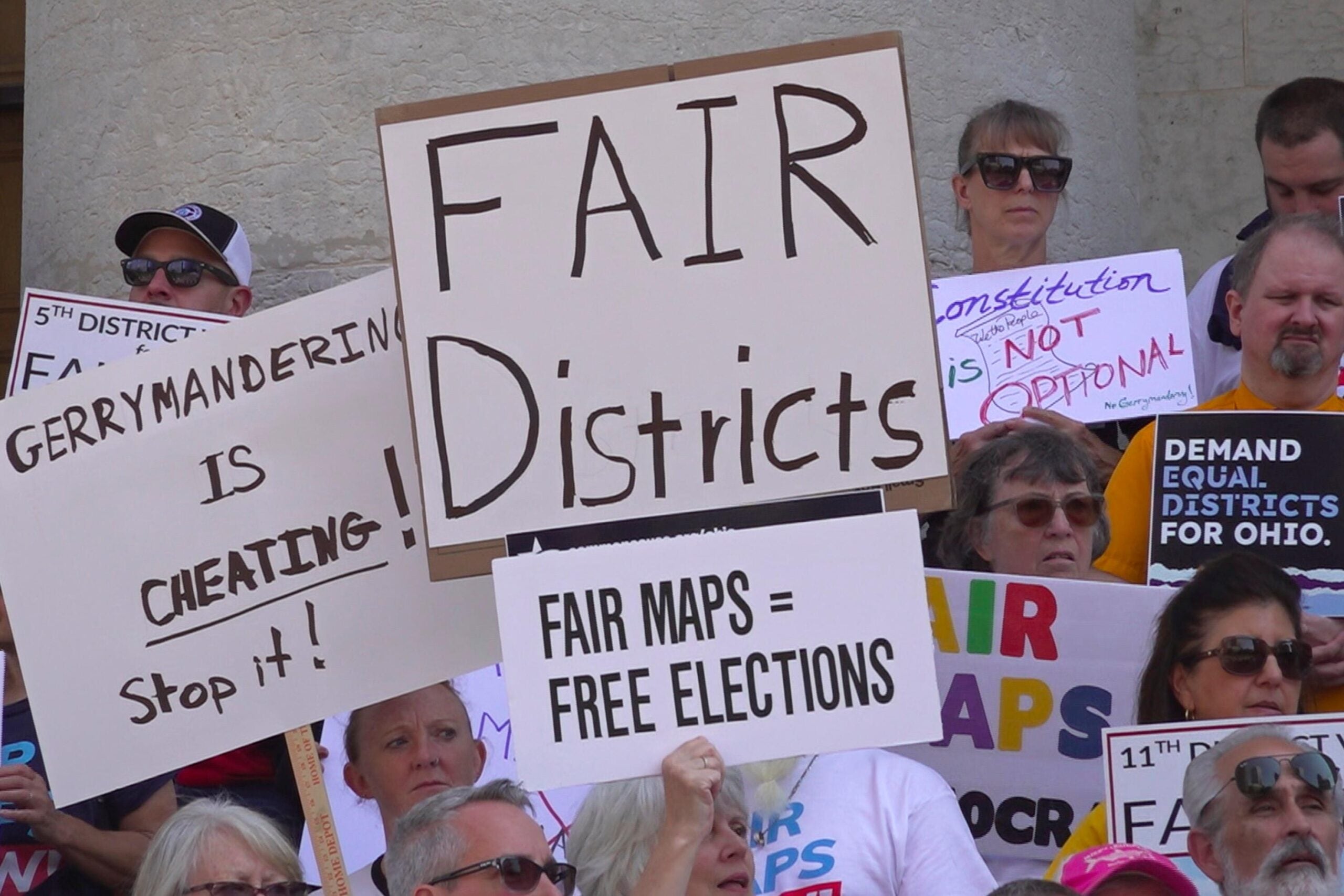A Democratic law firm has filed a lawsuit challenging Wisconsin’s congressional maps, weeks after the state Supreme Court ruled Wisconsin’s legislative maps unconstitutional.
Should the effort succeed, it could upend Wisconsin’s congressional races months before the 2024 election. Six of the state’s eight congressional districts are currently held by Republicans, and only two are seen as competitive.
“Wisconsin is a purple state, but our current congressional district maps don’t reflect that,” wrote U.S. Rep. Mark Pocan on X, formerly Twitter.
News with a little more humanity
WPR’s “Wisconsin Today” newsletter keeps you connected to the state you love without feeling overwhelmed. No paywall. No agenda. No corporate filter.
Pocan’s district, which encompasses liberal Madison, is one of Wisconsin’s two safely Democratic seats in Congress.
Meanwhile, Republicans blasted the lawsuit, calling it a further example of a liberal agenda in the state Supreme Court. The ideological makeup of that court swung to the left last year after the election of Justice Janet Protasiewicz. Republicans have argued that she pre-judged maps challenges while on the campaign trail.
“The newly bought and paid for liberal majority on the Wisconsin Supreme Court faces yet another test of the public’s trust: do the right thing by leaving the current, constitutional maps in place, or once again abandon sound judgment by catering to their left-wing out-of-state donors,” said Wisconsin GOP chair Brian Schimming in a statement Wednesday.
The argument behind the new congressional lawsuit is based on the ruling the Wisconsin Supreme Court handed down in December, which changed the standard by which the court evaluates redistricting.
The state maps ruling, delivered by the court’s liberal majority, ruled that the “least changes” approach to redistricting used by the previous conservative majority was unlawful. Under that approach, conservative justices endorsed maps with as little change as possible from previous, Republican-drawn maps.
The “least change” requirement created congressional maps that “perpetuated and exacerbated the partisan unfairness that has robbed Wisconsin voters of fair congressional districts for over a decade,” argued an attorney for the Elias Law Group, which filed the lawsuit Tuesday. Democrats voiced support for the challenge, which could result in maps that are more favorable to them.
Schimming said that if the Wisconsin Supreme Court accepts the congressional redistricting case, opponents would likely appeal it to the U.S. Supreme Court.
The court has not yet said whether it will take up the case.
New maps could make Congressional seats more competitive
The lawsuit contends the Congressional maps are based on a “now-discredited legal principle” that upheld GOP-drawn maps unnecessarily. For that reason, the plaintiffs argue, new maps offer voters more fair representation in a purple state.
Just two of the eight seats — both now held by Republicans — are seen as competitive. The 1st District, held by Rep. Bryan Steil, comprises Racine, Kenosha and parts of Rock and Milwaukee Counties. The 3rd District, held by Rep. Derrick Van Orden, comprises much of western Wisconsin and the cities of Eau Claire, La Crosse and Stevens Point. That seat had previously been held by Democrat Ron Kind, who did not seek reelection in 2022.
The current maps were drawn up by Gov. Tony Evers under the “least-change” model, which required them to be closely modeled on maps drawn by Republicans after the 2010 Census. Evers’ maps were approved by the Wisconsin Supreme Court.
Congressional primaries are scheduled for Aug. 13, and the general election is on Nov. 5.
Marc Elias, who chairs the Elias Law Group, has been active around the country on voting issues, including in Wisconsin. Elias’ firm has also challenged Wisconsin’s requirement to have witness signatures on absentee ballots and is behind an effort to overturn a ruling that restricts the use of absentee ballot drop boxes.
Wisconsin Public Radio, © Copyright 2025, Board of Regents of the University of Wisconsin System and Wisconsin Educational Communications Board.




